Forex trading is one of the most popular activities in the world. Many people from all over the world earn their living through trading online. This has become some of the major trends throughout the past years and many countries are actively involved in forex trading already. Among the countries that have popularized the online forex trading, there is Canada.
Canada itself is among the most developed countries, with a sustainable economy and a high standard of living. Many Canadians address forex trading for earning for the living and thus the forex industry in the country is well-regulated. There is the official regulatory authority that is responsible for regulating the market and providing security and safety of the traders.
While the market itself is well regulated, it is very important to choose the right broker to trade with. It is very much true that the trading depends on the skills of the trader and the accuracy of trading, but it is nonetheless important to choose the right broker. It will determine the right and successful path in the forex career. There are certain points which the traders willing to trade forex in Canad should definitely take into consideration.
How is the Canadian Forex market regulated?
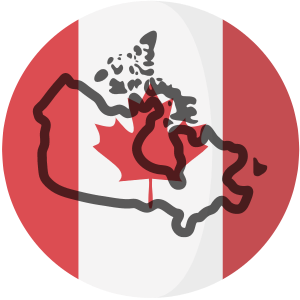 Forex trading is perfectly legal in Canada and despite there is no common foreign exchange trading legislation across the country, the market is well regulated. There are different regulations on the market between Canada’s different provinces and territories. The forex market is regulated on the federal level in the country. This fact is slightly more interrupting for the local brokers, as it challenges a lot of forex trading brokers in Canada.
Forex trading is perfectly legal in Canada and despite there is no common foreign exchange trading legislation across the country, the market is well regulated. There are different regulations on the market between Canada’s different provinces and territories. The forex market is regulated on the federal level in the country. This fact is slightly more interrupting for the local brokers, as it challenges a lot of forex trading brokers in Canada.
While in most of the countries, where forex trading is legal, there is one specific regulatory authority, in Canada we have as many as fifteen of them. There are two federal ones along with the rest thirteen provincial ones. This is why it is vitally important to the knowledge and information regarding the regulations and laws of the specific territory or province. The traders coming from one or another must understand the local regulations, and only then start looking for the brokerage and trade online.
All of the regulations apply to the brokers according to where they are based. The brokers based in one province have to comply with the local regulations. Thus, both the brokers and traders have to pay a lot of attention to the laws in order to gain trust and be eligible for providing and using services.
Below are some of the best FX brokers in Canada that we came across while working in this guide.
AvaTrade


Minimum deposit
100 USD

Licences
ASIC , FSC, FSCA, FSA, FFAJ, FSRA

Maximum leverage
400:1

Platforms
MT4, MT5
HotForex


Minimum deposit
5 USD

Licences
FCA, FSA, DFSA, FSCA

Maximum leverage
1:1000

Platforms
MT5, MT4, WebTrader
Plus500


Minimum deposit
$100

Licences
FCA, ASIC, CySEC, FSCA, FMA, MAS

Maximum leverage
1:30

Platforms
WebTrader
IQ Option


Minimum deposit
$10

Licences
CySEC, FSA

Maximum leverage
1:30

Platforms
Web
 Forex Legislations in Canada
Forex Legislations in Canada
One of the major regulatory authorities of the forex industry in Canada is the Investment Regulatory Organization of Canada, also known as IIROC. All of the licensed brokerages operating on the soil of Canada must be licensed and procrastinated by IIROC first. All of the forex markets are regulated either as derivatives or as securities. It is necessary that all user-friendly Canadain brokerages, must be based locally and provide their services to locals.
Only the licensed brokerage companies have the right to sell contracts for differences or CFDsto Canadian costumers. Though all of the companies have an obligation of posting and informing costumers about the risks associated with the financial instrument on their website. This is one more step which is taken in order to safeguard the costumers.
In Canada, brokers have much higher responsibilities than in many other countries. It is the primary obligation of the broker to check the level of knowledge and experience of each customer to determine whether the traders are competent enough to trade CFDs and generally have an understanding of the volatility of the currencies and are ready for the drastic changes in the market.
The brokerage companies in Canada must establish the cumulative loss limits for every customer. There is a limit that can not be exceeded and has to be marked by the broker and considered by the trader. Canadian regulators have also set rules regarding the maximum leverage Canada-friendly brokerages can offer to customers from the country. There is the maximum leverage limit for the retail clients from the broker’s side. The ceiling on leverage for retail clients ranges between 45:1 and 50:1.
The exact ration differs depending on what currency pairs the trader’s trade with. Hedging is not an option for Canadian costumers. This practice is considered illegal in Canada. Keeping that in mind. the leverage is higher for major trading currencies and lower for the minor ones, which is due to the increased volatility.
Extra Protection for Canadian Traders
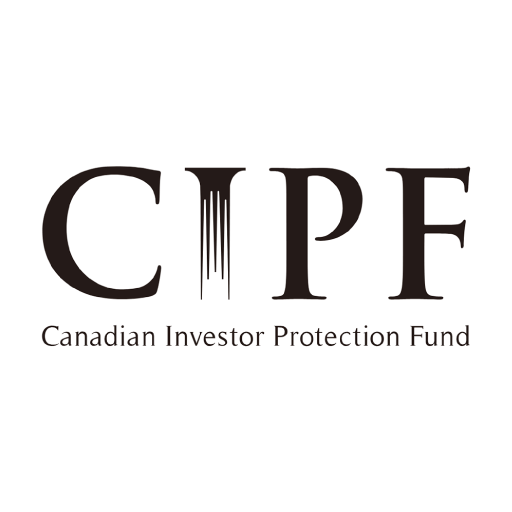 There is an extra protection measure for traders trading in Canad. The extra insurance package available for the traders in Canada is the policy called Canadian Investor Protection Fund, also known as CIPF. Currently, there are at most 17 brokers operating in the Canadian forex market, who offer the above-mentioned insurance package to the local consumers. The maximum coverage of the insurance is 1 million Canadian dollars. The insurance covers the cost of the broker declares insolvency.
There is an extra protection measure for traders trading in Canad. The extra insurance package available for the traders in Canada is the policy called Canadian Investor Protection Fund, also known as CIPF. Currently, there are at most 17 brokers operating in the Canadian forex market, who offer the above-mentioned insurance package to the local consumers. The maximum coverage of the insurance is 1 million Canadian dollars. The insurance covers the cost of the broker declares insolvency.
Canadian Investor Protection Fund is a non-profit organization, which is launched by the number of regulators in different provinces of Canada. The organization is launched in every territory of the country. The major privilege and benefit of the insurance package are that the trader is protected and secured, even in case the broker fils for bankruptcy.
The compensation shall not apply to the clients if they manage to lose the funds due to the fraud or due to their own trading mistakes. To ensure that the broker is a member of the program, the traders have to check the information directly with the CIPF and talk to the investment advisor. This is essential to use all fo the benefits of the program as well as to get maximum out of the broker.
It is worth mentioning that due to the highly regulated market and existing regulations, which apply to most of the brokers, it is very unlikely that you will come across the fraud or scam broker in the Canadian forex industry. There is one more reason for that. If the broker is observed in any illicit activity, then extremely high fines and penalties will be applied to the broker, as well as they should be evocative for the license. While this may not sound like a great comfort for the affected parties, such penalizations aim at preventing brokerages from cheating their customers in the first place.
There is one more requirement for the local traders. Canadian CFD brokers require the traders to meet the expectations of the minimum-income, the net worth and asset threshold as stipulated by the provincial regulatory body. This can be considered one of the major drawbacks of the forex market in Canada. Many costumers face some difficulties to enter the forex market, as they do not have sufficient capital to do so. Consequently, they are unable to enter the market as well as they are not able to earn some capital from the forex trading online.
Canada Financial Regulators
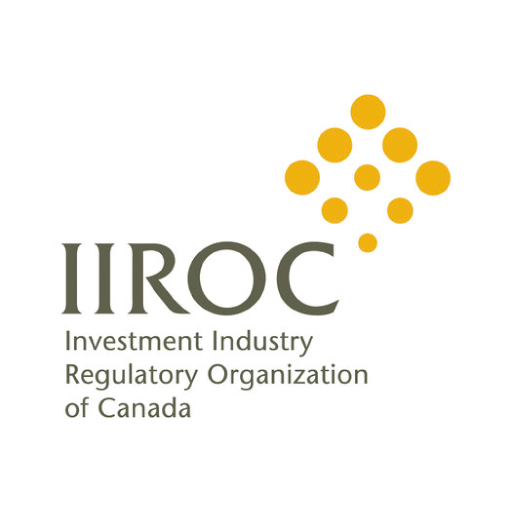 The regulatory authority in Canada is the Investment Industry Organisation of Canada. It is one of the most responsible and official bodies to oversee Forex trading activities. Besides, the helping hand for the regulatory body is the rest of the regulatory bodies present in each province of the country.
The regulatory authority in Canada is the Investment Industry Organisation of Canada. It is one of the most responsible and official bodies to oversee Forex trading activities. Besides, the helping hand for the regulatory body is the rest of the regulatory bodies present in each province of the country.
The first-ever regulatory authority of the Forex industry in Canada was the Investment Dealers Association, which is also known as IDA. There also was the Market Regulatoion Service Inc. Those two merged back in 2008 and now control the brokers and all trading activities on the equity and derivatives markets across the country.
While previously the market was not as regulated and sophisticated as we can see it nowadays. The main watchdog of the forex industry in the country is IIROC, which definitely has ultimate power over the market. To be more precise about the powers owned by the company there are some of them to be mentioned. The IIROC has the right to the fine broker or even to suspend their license if they violate the regulatory framework.
The regulator conducts adequate oversight to ensure all Canada-friendly brokerages operate in full compliance with the framework and high standards imposed by the market regulator. The IIROC is not alone in this industry. It has one umbrella organization, Canadian Securities Administrators (CSA), which is also responsible for overseeing the local market.
The CSA is tasked with improving and harmonizing the country’s financial market. The organization consists of the regulatory bodies in Canada’s ten provinces and three territories. This is why the umbrella organization can be considered as very sophisticated and comprehensive in terms of the operation.
Financial Regulators in Provinces
 We have already talked about two major regulators of the country’s forex market. Besides the IIROC and CSA, there are some more regulators for each province. This is due to the fact that each and every province in Canad has its own regulatory authority as well as official. Despite the fact that Canada is one country, all of the provinces have their own laws and regulations.
We have already talked about two major regulators of the country’s forex market. Besides the IIROC and CSA, there are some more regulators for each province. This is due to the fact that each and every province in Canad has its own regulatory authority as well as official. Despite the fact that Canada is one country, all of the provinces have their own laws and regulations.
The same happens for the best trading platforms Canada. Every province is related by the specific authority and that’s why there are so many of them. Let’s have a simple example. The province of Quebec is overseen by the local Autorite des Marches Financiers or AMF. As far as Quebec is a French spoken province fo the country, the regulatory authority also stands on the French bases. In British Colombia, Forex trading contracts are regulated as securities and fall under the jurisdiction of the British Colombia Security Commission. The Financial Services Commission and the Ontario Securities Commission oversee the market in Ontario.
The IIROC regulates the forex trading market at the federal level. However, Canada also has 13 provincial regulatory bodies, each responsible for regulating forex trading on a provincial level.
The regulatory bodies are:
- Alberta Securities Commission
- British Columbia Securities Commission
- Manitoba Securities Commission
- New Brunswick Financial and Consumer Services Commission
- Office of the Superintendent of Securities Service Newfoundland and Labrador
- Office of the Superintendent of Securities Northwest Territories
- Nova Scotia Securities Commission
- Nunavut Securities Commission
- Ontario Securities Commission
- Office of the Superintendent of Securities Prince Edward Island
- Autorité des marchés financiers Quebec
- Financial and Consumer Affairs Authority of Saskatchewan
- Office of the Yukon Superintendent of Securities
While all of the brokers operating any province of Canada are operating under one or another regulatory authority, there are some requirements for the brokers, which need to be fulfilled in order to receive the license form the regulator. Just like the trader, there is some sort of responsibilities for the brokers as well.
A forex broker in Canada must:
- Have a minimum capital of $250,000 and enough operating capital for business activities. The latter is calculated on a case-by-case basis.
- Have already registered with the relevant provincial regulatory body, otherwise, they cannot register with IIROC.
- Provide regulatory authorities with regular financial reports.
- Submit to audits conducted by independent third parties.
Rules for forex traders in Canada
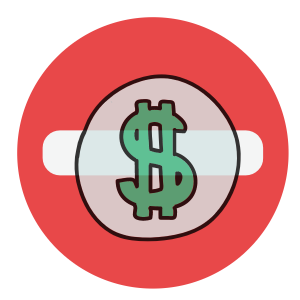 While the tough regulatory environment is great for forex traders because scams and fraud are very unlikely, there are also drawbacks. Margin requirements and leverage are limited and differ based on the volatility of a currency pair.
While the tough regulatory environment is great for forex traders because scams and fraud are very unlikely, there are also drawbacks. Margin requirements and leverage are limited and differ based on the volatility of a currency pair.
For example, the US dollar and Canadian dollar currency pair (USD/CAD) is considered to have the lowest level of volatility. As a result, the margin requirement is only 2%, with a maximum allowable leverage of 50:1.
The South African rand and Japanese yen currency pair (ZAR/JPY) is one of the most volatile. Therefore, it has a margin requirement of 29% and a maximum allowable leverage of approximately 3:1.
For many retail traders, these leverage limitations are a good thing because they limit the losses you can incur, especially if you trade volatile pairs. It encourages you to stick to more stable currency pairs, resulting in a lower risk of loss.
The Benefits of Trading Forex in Canada
While forex trading is definitely the worldwide spread activity, it is essential to consider all of the major benefits the Canadian online stock trading brokers offer the clients.
- All Canadian forex brokers must register with the IIROC and the relevant provincial regulatory body. This means they are heavily regulated, which significantly reduces the risk of you being scammed or defrauded.
- The IIROC requires forex brokers in Canada to have specially trained employees, so you won’t be dealing with an outfit that has no idea what they’re doing.
- Canadian regulatory bodies’ authorities closely monitor forex brokers to ensure that they are operating properly. This includes annual audits by third parties. Therefore, the risk of broker insolvency is very low.
- If a Canadian broker goes bankrupt, you don’t have to worry about losing any money because you are covered by the CIPF up to $1,000,000.
- Canadian brokers also offer localized payments, meaning that you’ll get your money faster and pay lower fees.
- A good Canada forex broker provides accounts in Canadian dollars, which will make trading easier for you since you’ll be using a currency you’re very familiar with.
Canadian Forex Trading Limits
Everything can not be ideal. Just like the person can not have all of the ideal characteristics, there is no company that has regulated and fulfilled everything in an ideal way either. While overall, trading online in Canada is highly beneficial, and Canadian brokers are one of the best in the world, there are some fo the facts to consider and take into consideration if you’d decide to take up trading forex in Canada. There are some limits that apply to the brokerage companies in Canada and those limits must be considered while choosing the right broker to trade with.
- Limited margin requirements and leverage. In Canada, forex brokers can offer limited leverage because of IIROC rules. Leverage differs from one currency pair to another, depending on volatility. The highest leverage you can get is 50:1, and the lowest is about 3:1.
- Hedging is not allowed. When trading with a Canada forex broker, you won’t be able to incorporate hedging into your strategy due to anti-hedging laws.
- IIROC and provincial regulators also impose limits on how much you can deposit in your live trading account based on your income and net worth.
What To Consider In Canadian Forex Industry
 Leverage risk: There very instrument traders and investors use to capture more from small movements in currency price can also magnify substantial price swings. Because trading is done on margin, unexpected price movements can result in margin calls, which require investors to add additional margin costs or add additional funds.
Leverage risk: There very instrument traders and investors use to capture more from small movements in currency price can also magnify substantial price swings. Because trading is done on margin, unexpected price movements can result in margin calls, which require investors to add additional margin costs or add additional funds.
Volatility risk: Volatility or variability are the changes in price quotes over a period of time. Opening or closing a position as prices move up or down can be more challenging when volatility is high and price swings are wider.
Interest rates: Central banks and governments use interest rates as a way to increase and decrease the money supply within the economy. Since the exchange rate between two currencies is derived from the supply and demand of each currency, changes in the interest rate can result in movements higher or lower in the currency pair pricing.
Sovereign risk: Governments back their home currency. When geopolitical events arise, such as we’ve seen with the crisis in Argentina, they manifest within the currency prices. Governments that are more reliable garner premiums, where riskier government currencies will trade at discounts.
Counterparty risk: Counterparties are the entities that provide the assets to investors when they trade. The risks associated with these companies come about when they cannot cover all their transactions or are at risk of default.
While regulators such as IIROC in Canada regulate these companies to ensure they maintain appropriate safety nets, extraordinary events such as the financial crisis in 2008 can lead to additional risk.
Liquidity risk: As with any traded asset, the ability to sell relies on someone willing to buy. If any geopolitical event reduces the participants in the market, liquidity risk, or the risk associated with the ability to buy or sell, becomes a significant factor.
Account Types
The forex market allows paying with different methods. Canadian forex brokerage companies also allow costumers to pay with various methods. This is also determined by the variety of the trading instruments the brokers offer costumers. Among the instruments, you shall find the exchange FX, indices, commodities, cryptos, stocks. This is one of the biggest lists available in the markets.
In order to start trading, you first have to create an account for trading. Those accounts can be a demo, no deposit account, or the real account. A demo account is the best option if you are a newcomer to the market and are not well adapted to it yet. The no deposit bonus account is relatively closer to the real account type. Most of the Canada brokerage companies offer at least one of the above-mentioned account types to the costumers. This is an excellent opportunity for the traders to learn to trade and get acquainted with the market.
Payment Methods
 Another news is that Canadian brokers give the costumers opportunity to pay for their accounts in different ways. The most common payment methods are Visa or MasterCard payment. Those are the broadly known payment methods. Moreover, both of the payment methods are accepted all over Canada. Some more payment methods include e-wallet and bank transfers.
Another news is that Canadian brokers give the costumers opportunity to pay for their accounts in different ways. The most common payment methods are Visa or MasterCard payment. Those are the broadly known payment methods. Moreover, both of the payment methods are accepted all over Canada. Some more payment methods include e-wallet and bank transfers.
Besides the payment methods, there is some sort of limitations and laws which apply to the deposits and withdrawals. The limits for the card deposit between brokerages ranges from 50 to 100 Canadian dollars.
As mentioned before, the bank transfers are accepted in Canada, though the transfers are not the most optional way of payment, as they might take up to five days to proceed with the order. Another very interesting payment method that is valid in Canada is through checks. This is not very common in many other countries. Though, the disadvantage of the payment method is that they take even longer than the bank transfers. Also, they mostly accept USD or CAD checks for payment.
Many online stock trading platforms in Canada accept electronic payment methods, which are also known as the EFTs. The payment can proceed straight from the mobile bank and won’t need a lot of time to fulfill the procedure fully.
Digital wallets such as Skrill or Neteller have become very popular especially since the popularization of digital currency all over the country. Payment with a digital wallet can be as simple as registering the wallet and transferring money with a single operation.
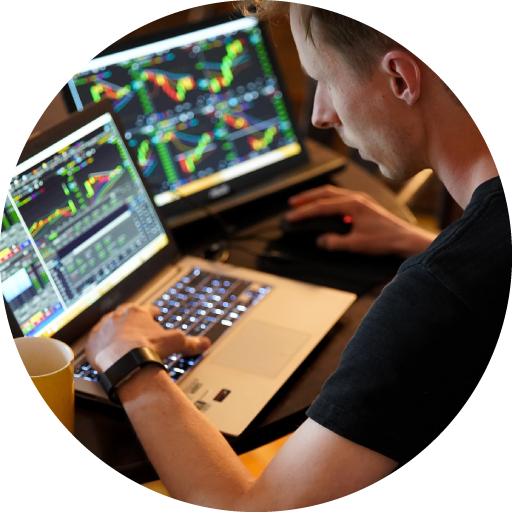 Forex Trading Platforms in Canada
Forex Trading Platforms in Canada
As in any other country, the trading platforms in Canada vary according to the brokers. It is completely up to the broker, which platform to use for trading. The most common and developed platform for forex trading is yet MetaQuites Software. This platform is not only popular in Canada but all over the world and broker in many countries address those platforms.
There are two main Meta platforms available for trading. Those are the MT4 and MT5 or the MetaTrader4 and MetaTrdaer5. The MT5 is a more developed and sophisticated version fo the platform than MT4. Both of them are the most used and time-tested trading platforms available in the forex market. Both MT4 and MT5 has set their own standards for online trading.
There are not some drastic differences between the two platforms, though according to some recommendations of the brokers, the MT4 platform is more useful for beginners, while MT5 is slightly more complicated and simply offers a lot more services and instruments, which should be useless for the beginners, at the moment they start trading online. Available in dozens of languages, MetaTrader 4 can be installed on a variety of desktop and mobile devices. It centers around the Forex markets.
Both platforms are free to download and there are dozens of guides on how to use them properly with the full potential. Most of the brokers in Canada should offer one or another or even both trading platforms for trading online.
There are some other platforms available for trading online, rather than only MT4 and MT5. There are some web-based platforms and customized platforms. Those are more or less individual set by the broker and might not be as broadly known as the Meta ones. The platforms usually do not have any, major technical flows, yet it should be mentioned that switching from one platform to another is another point to consider if you are willing to switch from one to another.
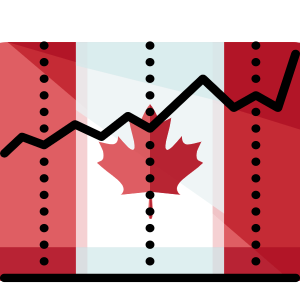 Mobile Trading In Canada
Mobile Trading In Canada
One very interesting tendency is observed in Canada. Mobile trading is very popular in Canada while in many other western countries you will not come across similar phenomena. This might be caused by several reasons, yet it is very impressive and the numbers, according to the researches by the Statista shows that Canadian are very much for smartphone use in any terms including online stock trading.
There are some fo the Android and iOS applications available for trading locally. This is majorly developed to make trading accessible and more comfortable for the ones who use smartphones mainly. Applications are available both in the App Store and well as in Google Play.
Bottom Line
Overall, Canada has one of the most regulated forex markets in the world. The number of regulations and the regulatory authorities responsible for the safety and security both for traders as well as brokers makes the market safe and sound for everyone who can comply with the requirements and regulations.
Almost every broker with the tiny exception is licensed in Canada making the market very valuable for the country’s economy. With the popularity of the forex industry increasing time by the time there are some new services and offers available from the brokers.











